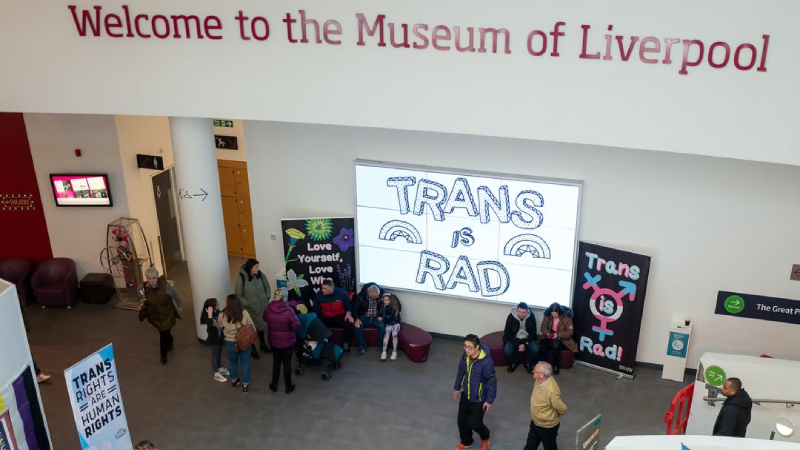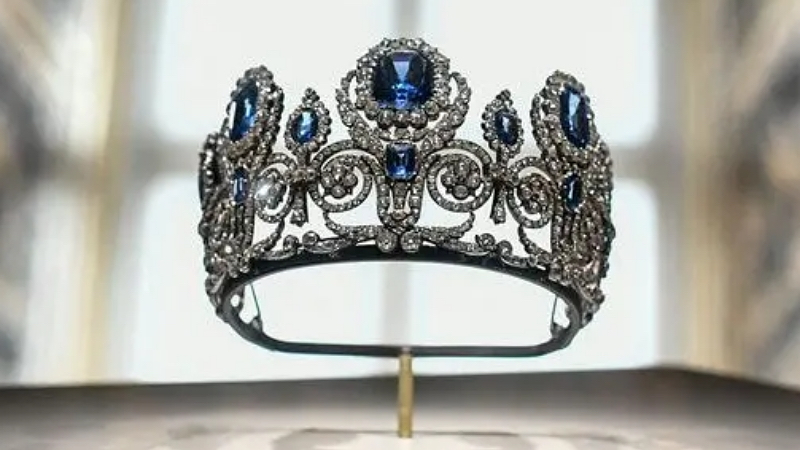|
Several UK museums and institutions have declared that their facilities are trans inclusive in solidarity with the trans community, following a UK Supreme Court ruling

Lauren Heath-Jones | Planet Attractions | 28 Apr 2025

 National Museums Liverpool promised to challenge biases, celebrate diversity, and promote understanding Credit: Pete Carr/National Museums Liverpool National Museums Liverpool promised to challenge biases, celebrate diversity, and promote understanding Credit: Pete Carr/National Museums Liverpool
Several UK museums have come out in support of the trans community, after a UK Supreme Court ruling decreed that the definition of “woman” in regard to equality laws is determined by biological sex rather than gender identity.
The ruling, announced in April, comes following a lengthy legal case brought forward by gender-critical campaign group For Women Scotland.
It has sparked several protests across the UK due to its exclusion of trans women, including those who hold gender recognition certificates - a document that legally recognises their preferred gender - and its impact on how trans people in the UK will access services and single sex spaces, including public restrooms.
Since then, a number of UK museums and cultural institutions have shown solidarity with the trans community. Among the institutions to show its support is We The Curious, a science and arts centre in Bristol, which released the following statement.
“We continue to welcome people to use the facilities that align with their gender and offer a range of choices and safer spaces. We’re proud to stand for inclusion because science thrives when everyone is included,” it shared on social media.
National Museums Liverpool also released a statement of support, referencing its previous programming that explored transness, and promised to “challenge biases, celebrate diversity, and promote understanding.”
“We are committed to ensuring that our spaces remain welcoming and safe for everyone, regardless of gender identity. We will continue learning, evolving, representing and engaging with trans communities authentically and respectfully in our work.
“We hope that transgender individuals and communities feel seen, valued, a sense of belonging and that their stories matter at National Museums Liverpool.
“Together, we aim to continue challenging, educating and building a future rooted in equity and dignity for all,” the statement read.
Similarly, London’s Vagina Museum expressed its “unequivocal support of and solidarity with their trans staff, volunteers, community partners, visitors and wider audience,” in a statement on social media.
“From the outset, the Vagina Museum has always been trans inclusive. An important part of its mission around spreading knowledge and raising awareness of gynaecological anatomy and health has been to challenge normative assumptions around our bodies and how they may or may not be connected to experiences of gender, gender expression and broader sexuality.
“In doing so, we highlight that sex, gender identity, gender expression, sexual orientation and other characteristics related to sexual identity exist in various different combinations and their relationship to one another is never clear cut,” the statement read.
“What is clear to us is that everyone, regardless of their body parts, are deserving of human rights, dignity and the power to identify as they wish to.”
“The ruling comes amidst an increasingly frightening climate for trans people in the UK and globally. We will continue to abide by our values, and ensure that the Vagina Museum remains a space in which trans people are included, welcomed and celebrated.”
The Crab Museum in Margate, meanwhile, disputed the ruling, describing it as an “abuse of science” on instagram.
Its statement said the ruling “centred on the word “biology”, with the judge stating that biological sex is “assumed to be self-explanatory and to require no further explanation.” Speaking in a professional capacity as a museum of biology: this is not how biology works.”
“There are no binaries in nature, and biology, like all sciences, should never be taken for granted or assumed to be “self-explanatory”. Even worse it should never be used to justify weaponised culture war issues.
“If you don’t like trans people then just be honest about your prejudices. But don’t use biology to support your views in the same way that racists do.
“Our trans siblings must be defended at all costs. If we allow the limitation of their rights then other minorities won’t be far behind,” the museum added.
Museums and galleries
|
|






Supplier Showcase 2025: The biggest attractions projects landing worldwide this year
|